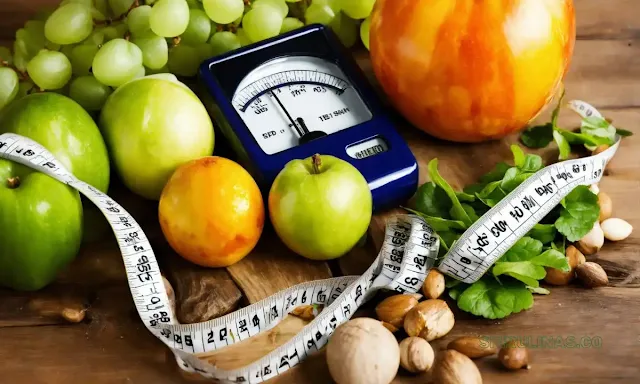14 healthy habits that make weight loss super simple
14 healthy habits that make weight loss super simple
Losing weight doesn't need to be complicated. While fad diets and extreme workout routines may promise fast results, they typically aren't sustainable in the long run. The truth is that successful, long-term weight loss is achieved through making small, healthy lifestyle changes you can stick with every day. Focusing on developing positive habits is a much more effective strategy compared to drastic temporary fixes. Here are 15 healthy habits you can adopt to make weight loss a breeze:
1. Drink Water
Aiming for at least eight 8-ounce glasses of water per day is an easy way to stay hydrated and feel fuller overall. Water helps flush out toxins from the body and keeps hunger at bay between meals. Replacing sugary drinks with water alone can cut hundreds of calories from your diet every week.
2. Eat Protein with Every Meal
Protein is digested slowly and helps keep you satisfied for hours after eating. Aim to include a high-protein food like eggs, Greek yogurt, fish or beans at breakfast, lunch and dinner. Good protein sources will also help preserve muscle mass during weight loss.
3. Start Your Morning with Oatmeal
Oats are a powerful breakfast choice because they are high in fiber and help regulate blood sugar levels. Top your oatmeal with fruit instead of sugary syrup to get belly-filling fiber, vitamins and antioxidants without excess calories. The soluble fiber in oats keeps you feeling full throughout the morning.
4. Focus on Fiber
Fiber-rich foods take longer to digest compared to low-fiber foods. Aiming for at least 25 grams of fiber daily from fruits, vegetables, legumes and whole grains is key for regulating hunger and blood sugar levels. High-fiber foods like berries, beans and whole grains are very weight-loss friendly.
5. Portion Control Meals and Snacks
Use smaller plates and divide snacks into single-serve containers to naturally limit portion sizes. It's easy to overeat from large plates without realizing how much you've consumed. Pre-portioning helps you intuitively eat less without feeling deprived.
6. Cook More Meals at Home
Meals prepared at home tend to be healthier and contain fewer calories than restaurant or take-out fare. Home-cooking allows you to control ingredients and serving sizes and avoid calorie-dense sauces or toppings. Make double batches to freeze half for an easy meal another night.
7. Eat Slowly and Mindfully
It takes around 20 minutes for the brain to signal to the stomach that it's full. Taking your time to chew and savor food allows you to recognize when you're starting to feel satisfied and prevents overeating. Mindful eating helps you intuitively cut back on portions without thinking about it.
8. Snack Smart
When hunger strikes between meals, reach for snacks like nuts, unbuttered popcorn, non-starchy vegetables with hummus, Greek yogurt or a hardboiled egg. They are more filling than their calorie counts suggest. Avoid sugary or salty snacks high in calories and unhealthy fats.
9. Spread Cheat Meals Throughout the Week
Strict dieting isn't sustainable. Allowing a single "cheat meal" once weekly where you indulge in a favorite treat prevents feelings of deprivation. Space cheat meals days apart so they don't backtrack progress made earlier in the week. It's easier to get right back on track if you don't go overboard.
10. Go to Bed Earlier
Lack of sleep is tied to weight gain and disrupts hormones that regulate appetite and metabolism. Aim for at least seven hours nightly to feel well-rested. Quality sleep aids weight loss efforts by keeping energy levels high for daily activity and helping you better resist cravings.
11. Move More Daily
Aim for 30 minutes of movement like walking, dancing, yoga or at-home strength exercises daily beyond your normal activities. You don't need to hit the gym to reap benefits. Moderate activity is ideal for weight loss and overall health. Incorporate movement anytime—take walks on lunch breaks or do yoga while streaming in the evenings.
12. Keep a Food Diary
Logging everything eaten has been shown to aid significant weight loss over time. Tracking food intake forces you to be fully aware of what you are eating and may help discover eating patterns to improve. Start with just a week to notice habits to modify and continue logging periodically as you progress in your goals.
13. Meal Plan Ahead
Dedicate one day each week to plan balanced meals and prep ingredients so healthy choices are ready. Planning prevents falling back on convenient junk options when you don't feel like cooking. Batch cook proteins and veggies to grab easy meals when time is tight during the week.
14. Surround Yourself with Support
It's tough to stick to healthy changes alone. Connect with family or friends also focused on wellness for motivation, accountability, and ideas. Apps and online communities help too by providing daily inspiration. Making lifestyle changes as a group effort can make embarking on new habits even more enjoyable and long-lasting.
Losing weight is not mostly about deprivation or extreme restrictions. It's about making small, consistent improvements to your routine that make a big impact over time. Focusing on developing healthy habits can transform your eating and activity patterns naturally for permanent results. With patience and consistency, these 15 simple strategies can help you lose weight and meet your goals with minimal effort or stress. The keys are progress, not perfection, and choosing habits you can sustain for life.

